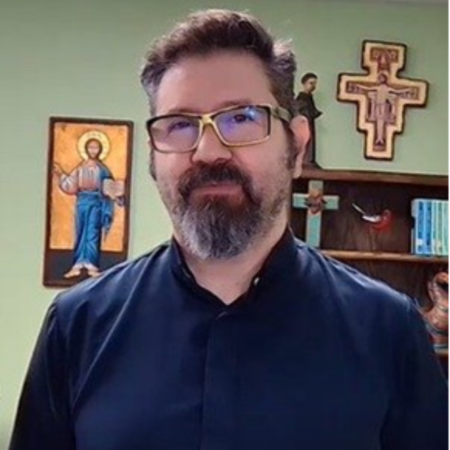Fr. Ricardo Chinchilla, CJM
The Sadducees in our Sunday Gospel want to ridicule Jesus and the belief in the resurrection, describing a woman seven times widowed and never a mother (Luke 20:27-38). Perhaps we imagine eternity as duration rather than intensity.
We all know the wonder of the “first time”: the first time we traveled, tasted, saw, or loved — then we got used to it. But, joyfully, eternity is the miracle of the first time, constantly renewing itself.
The Sadducees believe eternity is the survival of the family’s genetic heritage, so important that it justifies passing that woman from hand to hand, like an object: “take the widow…then the second took her, the third, and so all seven;” in a dreadful soulless repetitiveness. Not even touched by the thrill of love, they reduce a precious life to a thing to be used for their preservation. “Jesus does not reveal a modest biological eternity, but the very eternity of God.”
The trivial question of the Sadducees (whose wife?) leads to “resurrected people take neither wife nor husband.” Not that affection will end. Instead, the only thing that remains forever, when nothing else remains, is love (1 Cor. 13:8). The God who floods with life, even the ways of death, considers his children a fundamental part of his being; you are part of the heart of God

